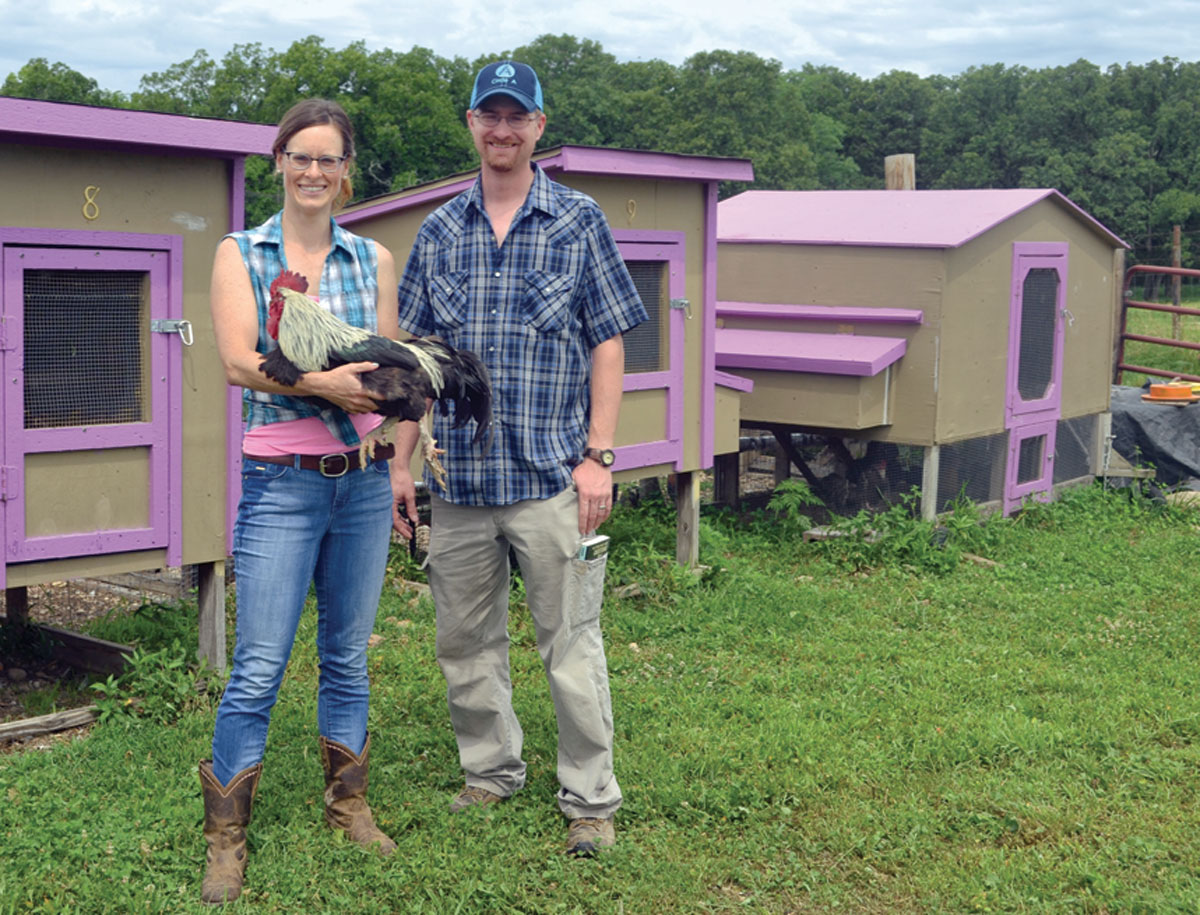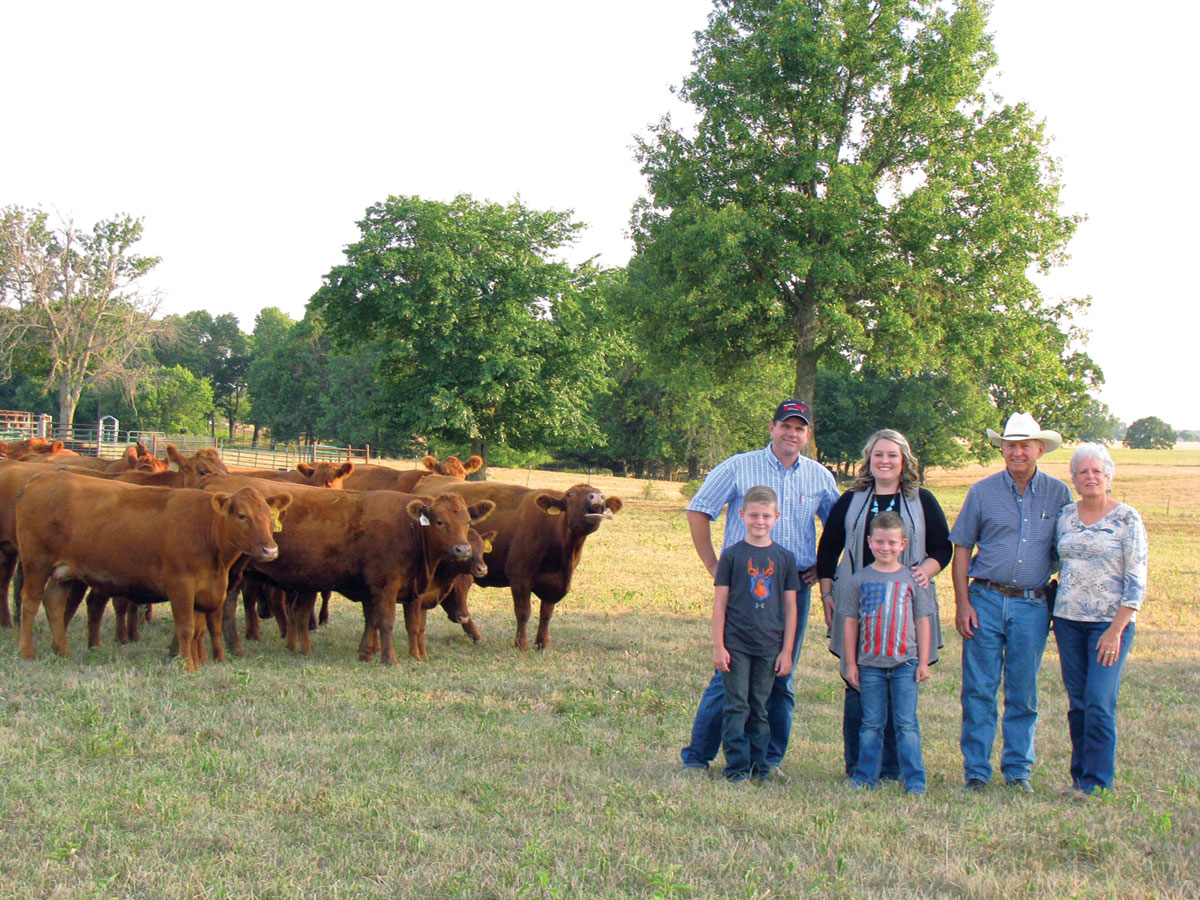
Gypsy Hen Poultry ships hatching eggs around the world to producers seeking Ameraucanas and Marans lines
Paul and Rachel Heldermon were both raised on the farm, cattle operations, that is. Paul was raised in Laclede County, Mo., and Rachel in northeast Oklahoma.
Today, they make their living 100 percent from the farm, raising registered Charlolais and Angus, as well as commercial stock on just more than 400 acres in rural Laclede County.
Paul’s grandparents, the late Ernest and Charlene Heldermon, as well as his late father, John, all lived in the area, and Paul and Rachel’s farm is the same one Paul was raised on.
Their newest agriculture venture, however, is all about birds – rare, hard-to-find birds. The couple raises Ameraucanas and Marans.
“I was working in Washington D.C. for the Department of Agriculture as an economist,” Racheel explained. “I decided I wasn’t cut out for the city life and when I decided to move back home, I purchased a mixed box of chicks. The Easter-eggers with their beards and muffs quickly became my favorite and soon, I began raising true Ameraucanas.”
That was literally the beginning of Gypsy Hen Poultry, just outside Eldridge, Mo.
“I did get into this niche market almost by accident but today, we have about 300 birds, grow out more than 500 chicks and ship thousands of eggs all over the country in a year. I like to emphasize quality over quantity. My goal is to produce a top show quality bird.”
The Americaunas produce blue eggs and the Marans lay the chocolate-colored eggs, setting them apart from other poultry.
“It’s actually hemoglobin on the shell that produces the dark brown color,” Rachel said. “Then, we have the olive-eggers, which are a cross between the two, just for fun.”
Stock from the Ozarks farm has made it’s way across the country, and around the world.
“Our marketing is mainly through the internet and we’ve sold eggs and chickens from California to Rhode Island, and Alaska to Puerto Rico,” Rachell said. “I like to ship hatching eggs. We’ve even had people visiting here from Russia, Bulgaria, Turkey and Korea who have taken eggs back with them so we can say we have chicks world-wide.”
Despite the sometimes almost whimsical nature of this rare bird market, Rachel and Paul find parallels between these hard-to-find chickens, both large fowl and bantams, and the cattle industry.
“For us, this is another part of sustainable agriculture and that is obviously very important to us and our livelihood, as it has been for the last several generations of both of our families,” Rachel explained. “A specific egg color and top-quality birds are the main goal, but the eggs are consumable. Just like registered beef in a sense, one can look for specific traits in show or seed stock cattle and while you may not eat this or that specific one, the bottom line is to still produce a consumable product. The same is true of these chickens and their eggs.
“As the economic times change, the question is, do you have a product that is more than just a novelty? There is a not a great deal of difference in raising a specialty breed versus the common every day type of chickens as far as feed types, protein and vitamin content are concerned. But, if we raise a product that meets a higher standard, we can capture a higher market value in favorable economic times and still have a consumable product if market demand should change.”
Knowing both the cattle and poultry industry, Rachel said the poultry side is more complex.
“One thing is for certain, bird genetics can be much more complicated than cattle,” she said with a laugh. “We have two breeds, but seven varieties of Ameraucanas and four of the Marans, all having to do with the color, such as black, blue, silver, white and even lavender, among others in the Ameraucanas, and wheaten, blue-wheaten, black-silver, and blue-silver in the Marans. These are colors accepted by the American Poultry Association.”







I have 12 week old Blue Wheaten/Splash Wheaten/ Ameraucana chicks from Rachel , and they are smart , friendly , beautiful birds ! So much so that when they’re allowed out to free roam they follow me where ever I go , even flying running to get to me when I go into the house and then come back out !
Rachel sent the eggs very well packaged and I had a100% fertile eggs ! You can’t go wrong with the Gypsy Hen lady !
So glad you have a good business experience with Rachel and her husband. I was delighted to discover he is the grandson of a couple I’d met here years ago here in Laclede County, lovely people, foster parents to so many kids.